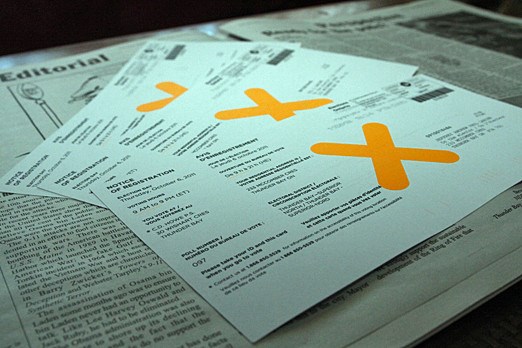After six elections in five years residents are definitely suffering from voter fatigue, says a Lakehead University associate professor.
Thunder Bay residents have gone to the polls six times in the last five years. Since 2006, there have been three federal elections, two municipal elections and a provincial election.
Throughout those five years, both Elections Canada and Elections Ontario have noticed a significant drop in voter turnout.
In the 2007 Ontario election, about 52 per cent of eligible voters cast ballots and about 61 per cent voted in in the spring federal election.
“There is definitely a voter fatigue,” said Lakehead University associate professor Laure Paquette.
“We’re the fifth province to have an election after the federal one. There are concerns about the turn out. Will people come out to vote because there is this voter fatigue? What I see right now is that people don’t even know that there is an election going on. That’s where you see the voter fatigue.”
Paquette said Elections Ontario has worked to try to make voters more excited. One example she gave was having the leaders’ debate later in September. She said parties like to have those debates earlier in the campaign because it allows more time to correct mistakes.
“I’m crossing my fingers that people will come out to vote,” she said. “People in this riding do vote to a much greater extent than other ridings in Ontario. I’m fairly confident that we’re going to have a good if not a majority of voters who will show up.”
Paquette added that the youth vote continues to be low.
Alicia Fowlie, a communications co-ordinator with Elections Ontario, said there have been changes to the provincial legislation to allow better flexibility for voters such as allowing Ontarians to cast their ballots for 29 days.
Fowlie said they are also working to try to get as many people to vote as possible.
“We’ve been working in communities across Ontario for more than a year to target groups who have traditionally faced barriers when voting such as students, disability and the youth to just name a few,” Fowlie said.
“We understand that our role is only part of one component of voter turnout. We have noticed that voter turnout has been on the decline for a very long time and it is not just in Ontario it is across the world. We’re the electoral agency in charge of administrating the process, our mandate is really about informing and education voters.”
Other changes included the ability to vote while out of the province. It used to be that Ontarians who were out of the province or out of the country had to use a proxy to cast their ballot. For this year’s election, voters can notify their returning office to send them a special ballot and then use that to vote.
She said voters have until Sept. 30 to apply to vote by special ballot.
There will also be special stations for the disabled. Advanced voting will start on Sept. 21 and will run until Sept. 30.
Sign in or register
- Messages
- Post a Listing
- Your Listings
- Your Profile
- Your Subscriptions
- Your Likes
- Your Business
- Support Local News
- Payment History
Registered Users
Already have an account?
New Users
Create a free account.
